Online Exercise Salon for the Elderly through Industry-Academia Collaboration
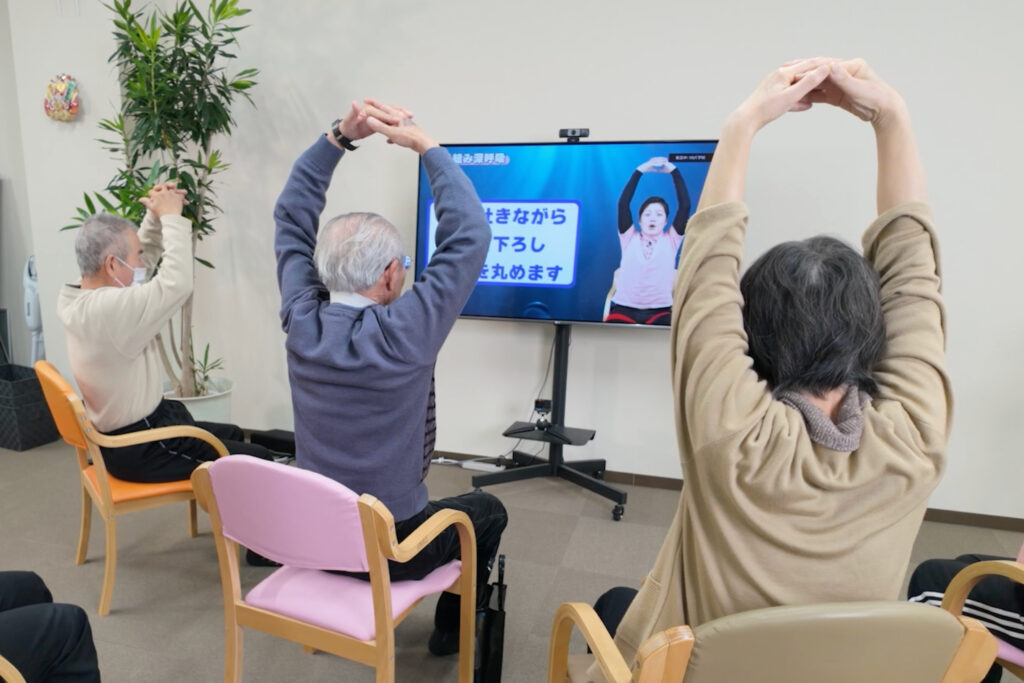
Based on a unique concept of “gut-brain-muscle correlation,” this program offers online exercise and brain health broadcasts on a contract basis to nursing homes. By providing more than 10,000 combinations of evidence-based exercises designed to prevent frailty and maintain health, the salons reduce the need for nursing personnel to spend time and resources creating their own content to keep residents healthy and engaged.
IM-OK Project
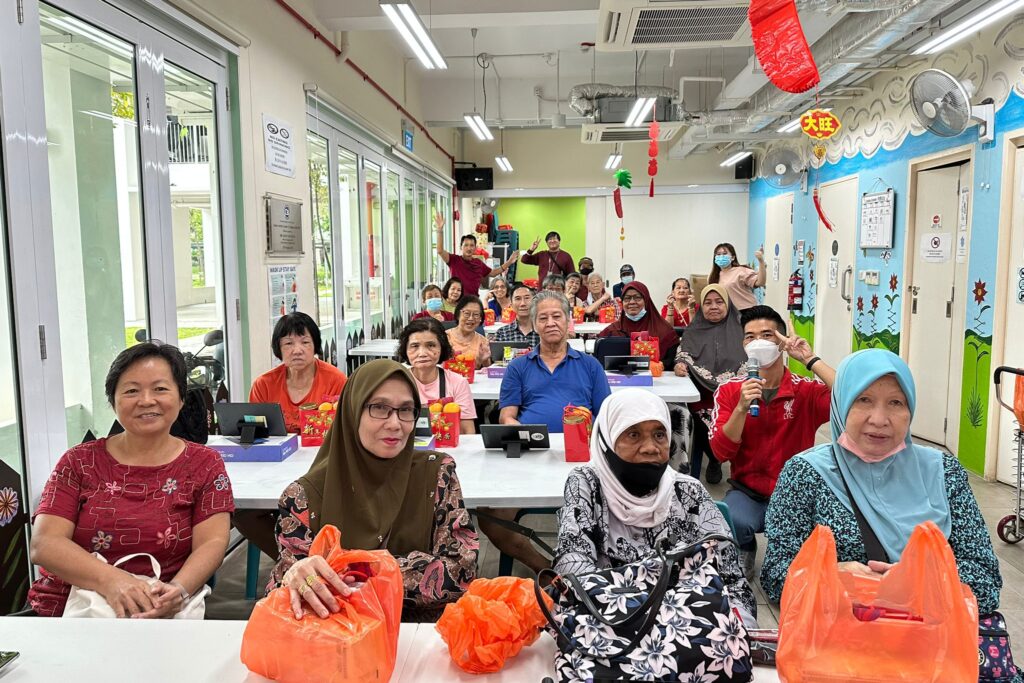
To combat social isolation, the Lions Befrienders Service Association (LBSA) created an easy-to-use elderly-friendly tablet device that lets users monitor and report their daily wellbeing. Pushing an “I am OK”button lets people know they are alright, and any missed check-ins alert family or LBSA volunteers to confirm the person’s safety. The tablet offers entertainment, learning, and health-related functions as well.
Micro-Jobs Program for Older People

The Micro-Jobs Program lets healthy, active seniors assist frailer peers in their neighborhood through tasks such as meal delivery, medication reminders, or accompanying people to doctor’s appointments. The tasks are “bite-size,” so there is a low barrier to entry. Participants are trained and receive a modest allowance in return for the tasks. More importantly, they feel a sense of purpose and engagement with their community.
CARE-Net—A Smart Integrated Care Approach to Reach Older People in a Depopulated Area
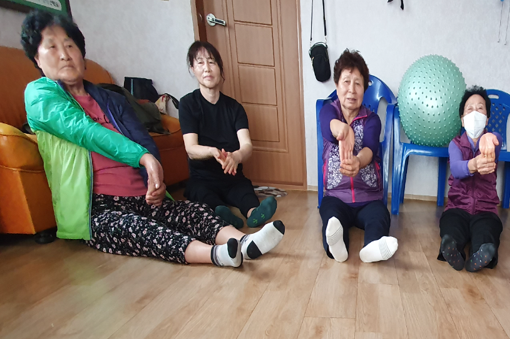
CARE-Net is a digital platform that assists underserved rural communities by connecting health, welfare, long-term care, and medical care. By allowing inter-agency data-sharing and communication, experts can quickly identify a person’s needs and consult with others to resolve them. Village care managers (trained citizen health leaders) in each village help their neighbors navigate the system and advocate on their behalf.
YoungHappy Plus—Online Community Platform to Enhance the Quality of Life for Urban Seniors
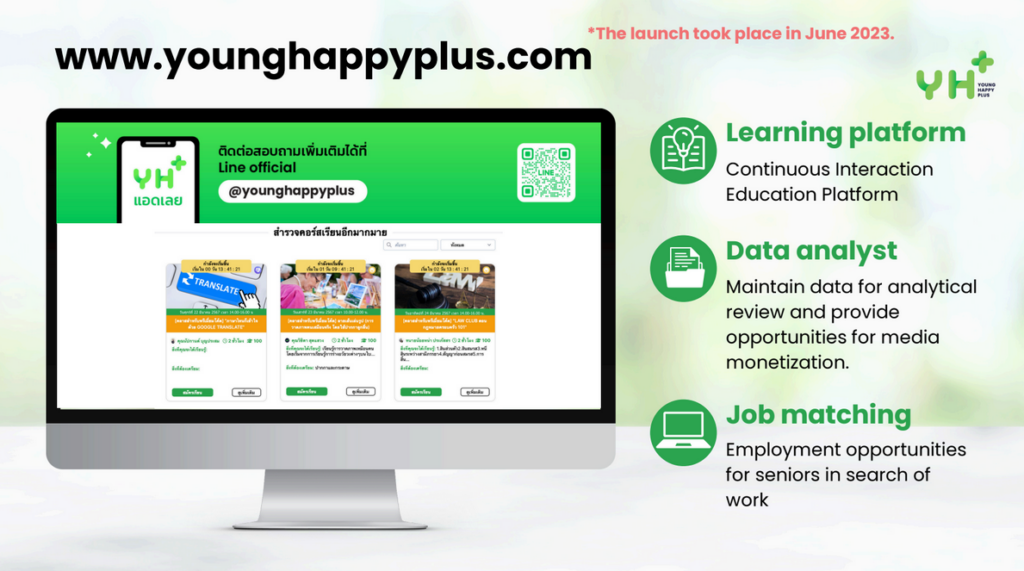
YoungHappy is a social enterprise providing in-person and digital solutions to promote social interaction, physical activity, and mental stimulation for urban elders. They create “Happy Spaces,” community hubs located in shopping malls, let members join their peers for art workshops, health talks, exercise classes, etc., while their “YoungHappy Plus” platform (via app or LINE), offers virtual classes on digital literacy, health, and more.
Digital Literacy Modules for Older Persons
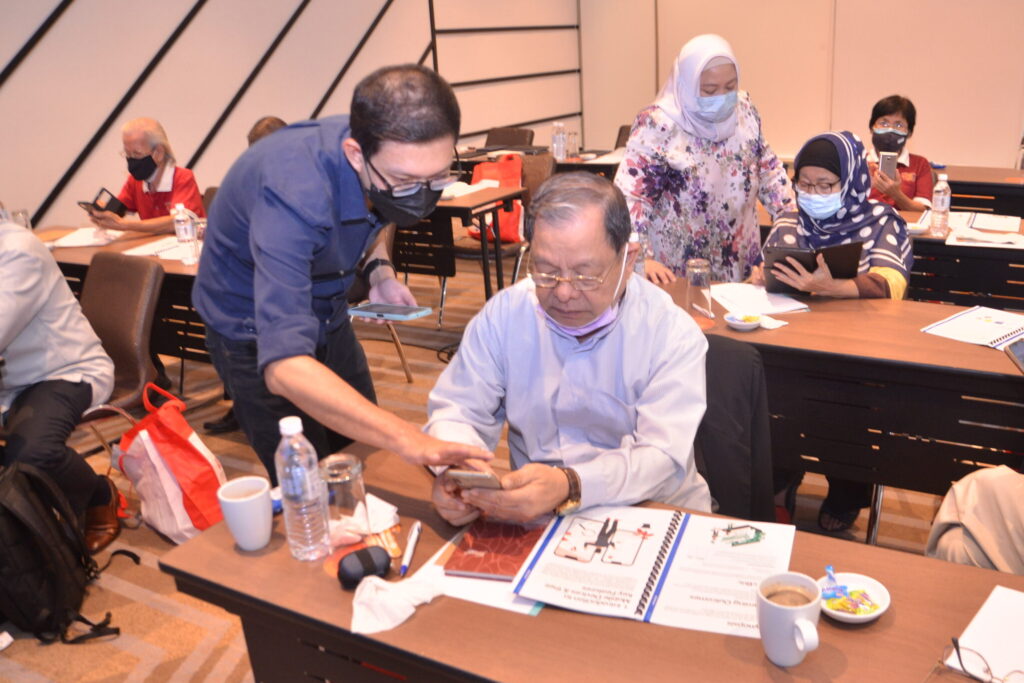
MyAgeing has created five comprehensive, evidence-based educational modules to improve digital literacy skills among older people, helping them access essential services and stay connected to their communities. Topics include using mobile devices for navigation, messaging, and shopping, and they focus
particularly on accessing safe content and avoiding scams.
Ready Senior Project
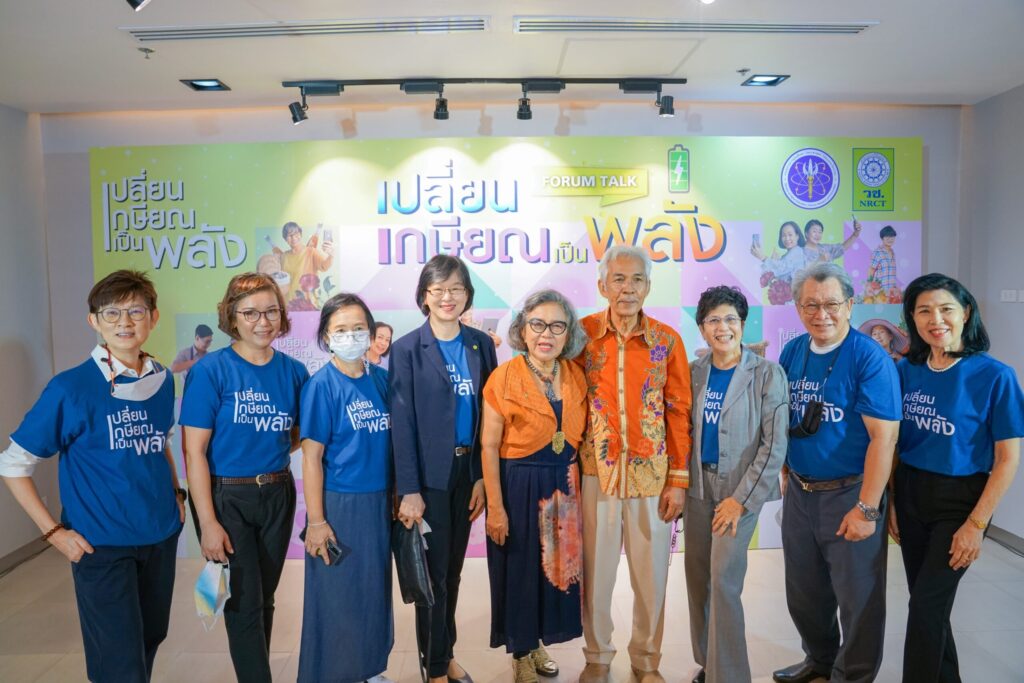
The Ready Senior Project is an online platform that includes a learning space for gaining technology skills as well as health-related and caregiving skills. This university-based project seeks to empower older people to be economically self-reliant, have a good quality of life, and reduce the burden on healthcare systems as Thailand’s population continues to age.
Leveraging Digital Technologies to Improve Quality of Life for Older persons: Case Studies from China, Japan and the Republic of Korea
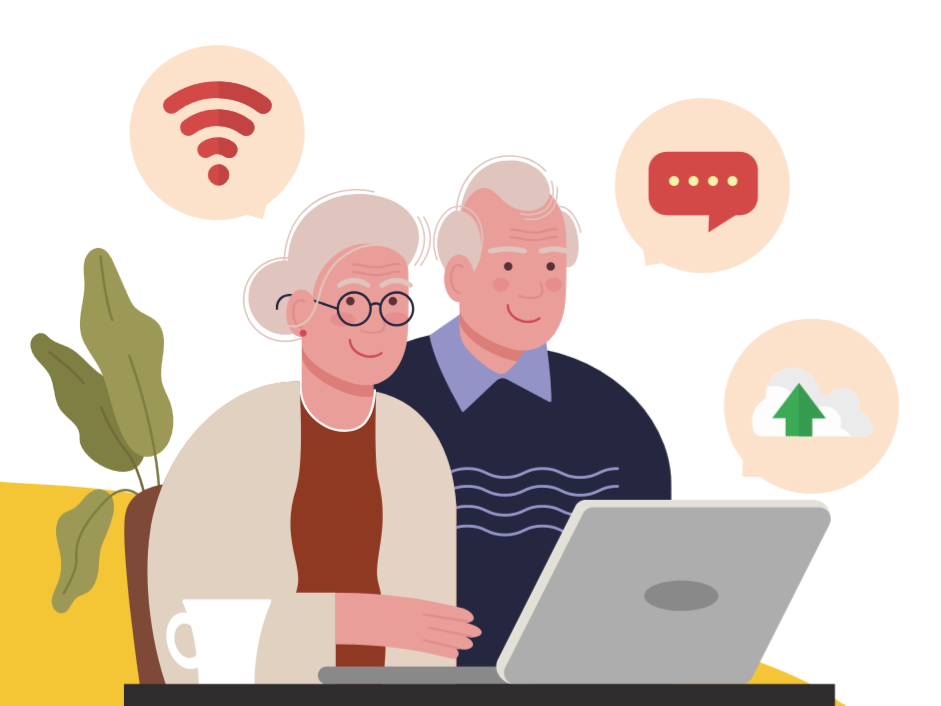
This report, to which the secretariat of the Healthy Aging Prize forAsian Innovation (HAPI) contributed, reviews strategies in China, Japan, and the Republic of Korea, reviewing policies and programs aimed at improving life quality for older adults. Through case studies, it highlights trends, challenges, and lessons in creating inclusive, tech-driven ageing societies.
Presentation of Case Studies of Japan’s Community-Based Integrated Care System at World Bank Event
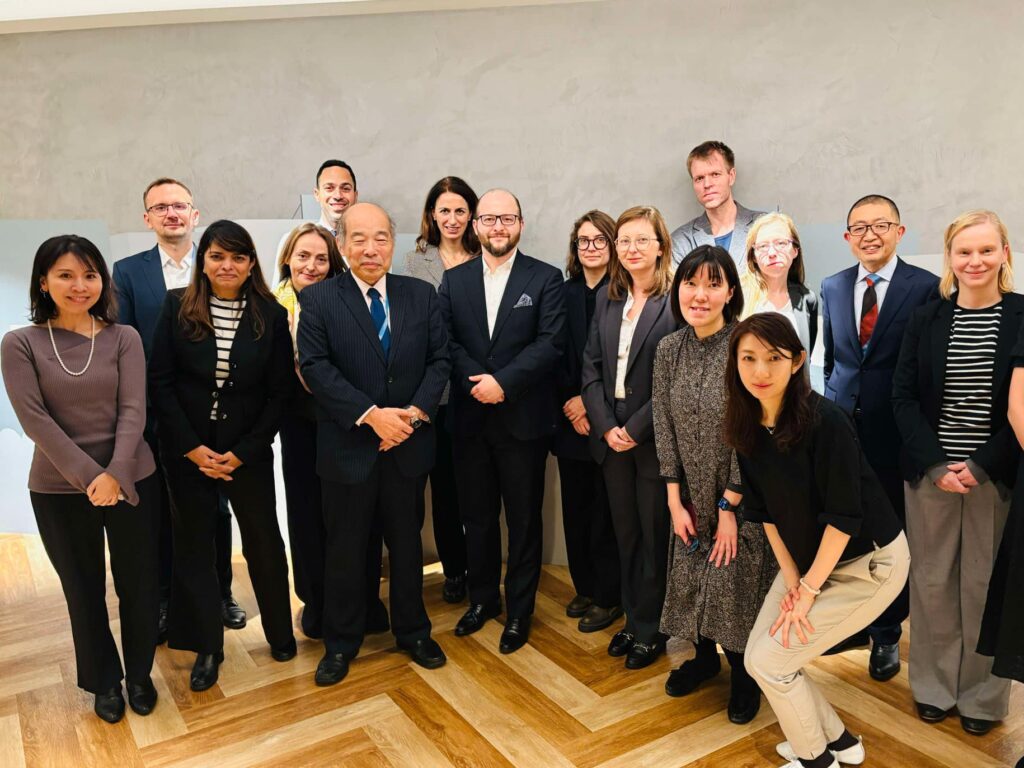
AHWIN/HAPI Team member Momoko Abe presented HAPI case studies at the Ninth International Forum on Senior Care Science and Innovation
Innovation for an Aging Asia—Case Studies from the Healthy Aging Prize for Asian Innovation (HAPI)
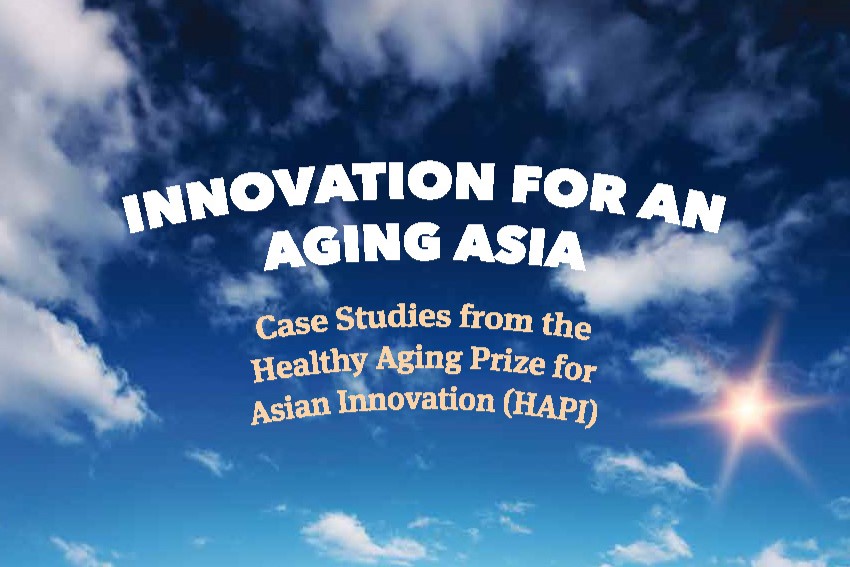
This case study report features innovations recognized by the first three rounds of the Healthy Aging Prize for Asian Innovation (HAPI)

